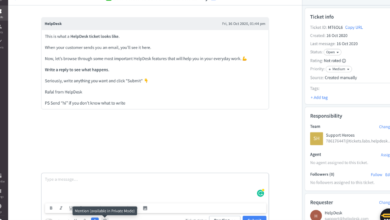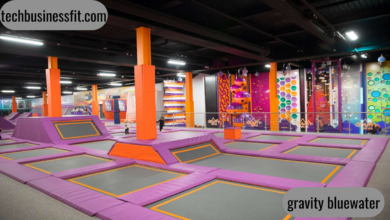EzClasswork Games: Top 10 Picks for Classroom Engagement

Introduction
ezclasswork games In the ever-evolving landscape of education, educators are constantly seeking innovative methods to enhance learning experiences and improve student outcomes. EzClasswork Games have emerged as a transformative tool in this quest. These interactive games are designed to make learning more engaging and effective, combining educational content with the fun of gaming. This article delves into the concept of EzClasswork Games, their benefits, types, implementation strategies, and future trends, offering a comprehensive guide for educators looking to integrate these games into their classrooms.
What Are EzClasswork Games?
EzClasswork Games represent a genre of educational tools that leverage the principles of gaming to facilitate learning. Unlike traditional educational methods, which often rely on passive instruction, EzClasswork Games encourage active participation and problem-solving. These games are designed to align with educational standards while incorporating elements of fun and competition.
Historically, educational games have evolved from simple flashcards and board games to sophisticated digital platforms. EzClasswork Games are a modern iteration of this evolution, utilizing technology to create immersive and interactive learning experiences. These games often feature a variety of formats, including quizzes, simulations, and role-playing scenarios, each tailored to meet specific educational objectives.
One of the defining features of EzClasswork Games is their ability to adapt to different learning styles. Whether a student thrives on visual stimuli, interactive challenges, or collaborative activities, there is likely an EzClasswork Game designed to cater to these needs. This adaptability makes EzClasswork Games a versatile tool in the educational toolkit.
Benefits of Using EzClasswork Games in the Classroom
The integration of EzClasswork Games into the classroom offers numerous benefits, transforming traditional educational practices into dynamic and engaging experiences. One of the primary advantages is enhanced student engagement and motivation. By incorporating game elements such as points, levels, and rewards, EzClasswork Games create an environment where learning becomes an enjoyable challenge. This increased motivation often leads to higher participation rates and a greater enthusiasm for learning.
Furthermore, EzClasswork Games contribute significantly to improving learning outcomes and retention. Studies have shown that interactive and game-based learning methods can lead to better understanding and recall of educational material. The immersive nature of these games helps students to grasp complex concepts more effectively by providing hands-on experience and immediate feedback.
Another notable benefit is the promotion of teamwork and collaboration. Many EzClasswork Games are designed to be played in groups, encouraging students to work together, share ideas, and solve problems collectively. This collaborative approach not only enhances social skills but also prepares students for real-world scenarios where teamwork is essential.
Additionally, EzClasswork Games are adaptable to various learning styles and needs. Whether a student excels through visual aids, auditory instructions, or hands-on activities, there is likely an EzClasswork Game that aligns with their preferred learning method. This flexibility ensures that all students have the opportunity to engage with the material in a way that suits them best.
Types of EzClasswork Games
EzClasswork Games come in a variety of types, each offering unique features and benefits. Understanding the different types can help educators select the most appropriate games for their curriculum.
Digital games are a prominent category within EzClasswork Games. These include interactive quizzes, educational simulations, and digital role-playing games. Digital games offer the advantage of incorporating multimedia elements such as animations, sound effects, and interactive interfaces, making them highly engaging for students. Examples include online quiz platforms and virtual labs where students can explore scientific concepts through interactive experiments.
Physical games, on the other hand, are tangible and often involve board games or card games that can be played in the classroom. These games are beneficial for creating a hands-on learning experience and fostering face-to-face interaction among students. Examples might include educational board games that cover various subjects or card games that reinforce vocabulary and math skills.
Case studies and success stories highlight the effectiveness of EzClasswork Games in real-world educational settings. For instance, a study conducted in a primary school setting demonstrated that students who engaged with educational simulations showed significant improvement in their understanding of complex subjects like history and geography. Another success story involves a middle school where role-playing games were used to teach social studies, resulting in enhanced student engagement and enthusiasm for the subject.
How to Implement EzClasswork Games Effectively
Implementing EzClasswork Games effectively requires careful planning and consideration. The first step is selecting games that align with your curriculum and educational goals. Educators should evaluate the content of the games to ensure they cover relevant topics and meet learning objectives. For example, a game designed to teach mathematical concepts should align with the specific curriculum being taught in the classroom.
Integrating games into lesson plans involves creating a structured approach to incorporating these activities into daily or weekly routines. This might include setting specific objectives for each game session, providing clear instructions, and debriefing students after the game to discuss what they learned. Incorporating games as a regular part of the curriculum can help maintain student interest and reinforce learning.
Assessing the impact of EzClasswork Games on student performance is crucial for determining their effectiveness. Educators can use various methods, such as tracking academic progress, gathering feedback from students, and observing changes in engagement levels. Regular assessments can provide insights into how well the games are contributing to learning outcomes and whether any adjustments are needed.
Maintaining a balance between game-based and traditional learning is also important. While games can enhance learning, they should complement rather than replace traditional instructional methods. Combining game-based activities with conventional teaching approaches ensures a well-rounded educational experience that addresses various aspects of learning.
Challenges and Solutions
Despite their many benefits, EzClasswork Games can present challenges in the classroom. Technological limitations are a common issue, particularly in schools with limited access to digital resources. To address this, educators can opt for physical games or utilize low-tech digital solutions that do not require advanced technology.
Student distractions can also be a challenge, as some students may become more focused on the competitive aspects of the game rather than the educational content. Implementing clear rules and guidelines for game participation can help mitigate this issue. Additionally, educators can monitor gameplay to ensure that students remain on task and stay focused on learning objectives.
Time management is another challenge, as integrating games into the curriculum may require additional planning and time. To manage this effectively, educators can schedule game sessions during specific times or incorporate games into existing lesson plans. Prioritizing game-based activities that offer the most educational value can help ensure that time is used efficiently.
Best practices for effective game-based learning include setting clear learning goals, providing structured feedback, and fostering a positive learning environment. By following these practices, educators can maximize the benefits of EzClasswork Games while addressing potential challenges.
Future Trends in Educational Games
The future of EzClasswork Games is likely to be shaped by innovations and emerging technologies. Advances in artificial intelligence (AI) and virtual reality (VR) are expected to enhance the interactivity and immersive experiences of educational games. AI-powered games could provide personalized learning experiences by adapting to individual student needs, while VR games could offer virtual field trips and simulations that bring abstract concepts to life.
Predictions for the evolution of EzClasswork Games include increased integration with other educational technologies and platforms. For example, games may become more seamlessly integrated with learning management systems (LMS) and digital textbooks, allowing for a more cohesive educational experience. Additionally, the development of more sophisticated analytics tools could provide educators with deeper insights into student performance and engagement.
The role of AI and VR in educational games is already beginning to make an impact. AI can analyze student interactions with games to offer tailored feedback and adjust difficulty levels, while VR can create realistic simulations for subjects such as science and history. These technologies have the potential to revolutionize the way educational content is delivered and experienced.
Conclusion
EzClasswork Games represent a significant advancement in educational tools, offering a dynamic and engaging approach to learning. By enhancing student motivation, improving learning outcomes, and promoting collaboration, these games provide a valuable addition to traditional teaching methods. Effective implementation requires careful planning and consideration, but the benefits can be substantial. As technology continues to evolve, the future of EzClasswork Games promises even more innovative and interactive experiences for students.




